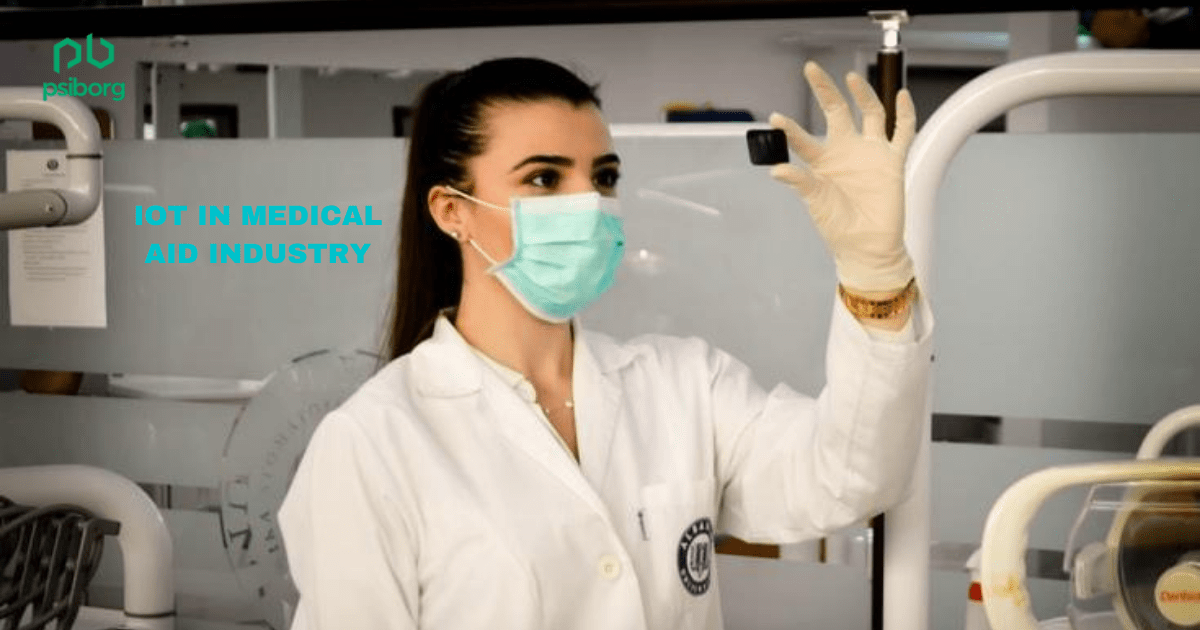IoT solutions to Aid Medical Industry
IoT solutions to Aid Medical Industry
Internet of Things (IoT) has changed the way technology used to work. Now with IoT, more and more devices are connected. These devices share information that can be collected and monitored to evaluate decision making from the administrator level. This connectivity also makes the information more transparent and precise in keeping everyone aware of the things around them. Several industries have benefitted from these modern IoT solutions. Medical or Healthcare may have the highest impact as information sharing becomes more feasible.

Here are the most notable things you should know about IoT advancements in the medical healthcare industry.
Connected medical devices
IoT will connect the devices from end-to-end solutions. So from the patient room, analysis, equipment rooms analysis, and doctor analysis, all information will be collected. Thus, collaborating things on a high-level as decision making will improve. Scans, tests, and evaluation will be checked thoroughly by machine algorithms, humans, and combined decisions that can assist in favor for the benefit of the patients.
Similarly, for the managers and highers staff, there will be enhanced control on the specific area. They can help in decision making, pinpoint errors or reduce fatalities, and stop human errors. Protection against theft/Geofencing, resource consumption, sensors for tracking movements, automatic alerts, preventive or predictive maintenance, also enjoys real-time fault and error detection, automation maintenance, and more to keep specific areas governed with more controlling measures.
Remote monitoring
One of the key aspects of the IoT connected devices is remote monitoring. Every patient whether in the room or the confines of their home. Their movement, drug intake, efficacy, results, and prescription are maintained remotely. Almost every aspect of this information will enhance the medical procedures, reduce human errors, and bring more productivity from the same systems.
Remote monitoring devices can check the temperature of vaccine refrigeration in away rural clinics and maintain the highest level of the longevity for the medicine. This cloud-based monitoring can track the real-time temperature and notify the personnel for any swift change or can customize the changes remotely as well.
Smart Hospitals
With IoT integrated hospitals, patients will get preferential treatments with the care of automated machines. Their health, record, past track, and subsequent diagnosis will be at the hand of a click. Current medicinal procedures, drug intake, efficacy, and its complete treatment protocols.
Doctors can evaluate the complete medical procedure through their desks. All the real-time stats, medical reports, anomalies, and any other notable factors will be accessible. So doctors will also be able to visit more patients virtually and control the areas with a fewer number of doctors.
IoT devices can also be tagged to vehicles, equipments, such as oxygen pumps, wheelchairs, nebulizers, defibrillators, and others. Similarly, they are also quite useful with pharmacy, inventory control, environmental monitoring, fridge temperature, room temperature control, and humidity levels inside too.
Hygiene monitoring IoT devices can precisely monitor the spread of infections in a given area. And alert in case they any sign of spreading.
Critical Event management
These IoT devices seamlessly connect and provide essential information for the right person. For instance, an automatic dispenser drug machine that will provide elderly regular alarms for taking medicines. And in case they fail to take, a notification is mailed to the nearest associated person or medical professional who can then physically check the person. And in case of emergency, these IoT devices can monitor the health of the patients and alert the authorities or ambulance precisely to avoid any medical breakdown.
Wearable medical devices, gadgets, and footwear also offer various information related to our health, such as blood pressure, heartbeat, etc.
Several benefits come out of IoT medical devices that include remote monitoring, maintaining air quality sensors, sleep monitoring, medication refill reminders. Even the advanced biometric scanners remotely, Drug effectiveness tracking, vital signs monitoring, data transferring tools, along with safety and sleep monitoring tools for infants, are also quite feasible.
IoT devices also clear up the possibilities for insurance companies to validate the patient's claim through real-time monitoring. And this connectivity empowers companies to leverage the intelligent devices, to safeguard information from all sources. This transparency will give the right patient the claim and separating the fraudsters.
PSIBorg is one of the leading IoT firms for developing this modern technology for optimized solutions for the future. There are hundreds and thousands of future perspectives for IoT solutions. Several advancements have been accomplished. Still, a lot of research and development is to come in the future.


Comments
Post a Comment